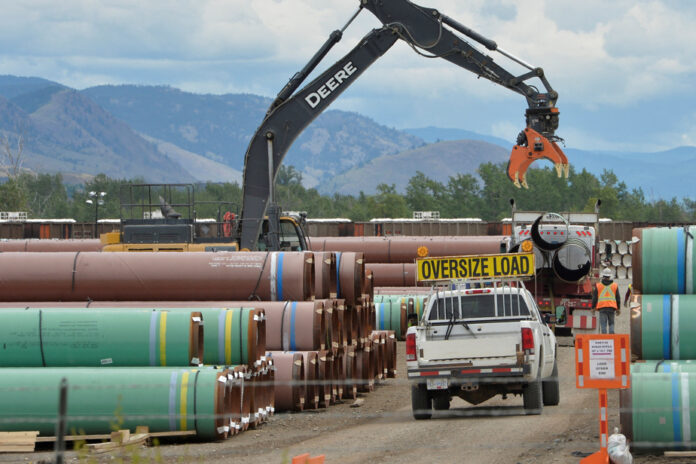(Charlottetown) Prime Minister Justin Trudeau persists and signs: The federal government’s purchase of the Trans Mountain Pipeline from U.S. company Kinder Morgan in 2018 was in the national interest, even though the construction costs associated with its expansion have increased than tripled.
Mr. Trudeau said he is hopeful of taking the controversial asset private over the next few months as construction works wrap up and the new pipeline is slated to open early in the new year. Talks are underway with potential buyers, including First Nations investors, he said.
Following the three-day federal Cabinet retreat, the Prime Minister once again defended his government’s decision to purchase this pipeline, which is still heavily criticized by environmental groups, in order to triple its capacity from 300,000 barrels per day to some 900,000 barrels.
“The federal government is not in the business of running pipelines. We bought this pipeline to make sure it would be built because it was in the national interest. There are a lot of private sector groups, including Indigenous groups, who are very interested in owning it,” the premier said.
Ottawa bought the pipeline for $4.5 billion after Kinder Morgan decided to cancel the expansion project due to legal battles in the courts by Indigenous groups and the province of British Columbia to stop it. The federal government also wanted to allow Alberta to get a better price for the oil the province produces.
The expansion of the pipeline from Edmonton, Alberta to Burnaby, British Columbia was initially valued at $7.4 billion. The bill jumped to 21.4 billion in 2022 before being revised upwards to 30.9 billion dollars in the spring.
Mr. Trudeau declined to comment on whether the federal government should sell the new pipeline at a loss. “We are confident that Trans Mountain’s business plan remains strong,” he said.
According to a report by the Parliamentary Budget Officer released last year, the federal government will be forced to sell the Trans Mountain pipeline at a loss due to soaring construction costs. In 2021, a team of researchers from Simon Fraser University in British Columbia estimated that the losses for taxpayers could approach 18 billion.















